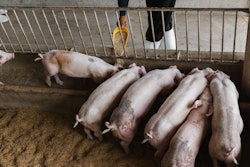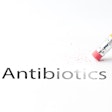
If approved, the new laboratory would focus on plant- and insect-based aquafeed products
The middle of the Canadian prairie may not seem like the most intuitive place to locate a specialty laboratory dedicated to aquafeed, but the University of Saskatchewan believes they have all the right ingredients for a unique, world-class research center.
The university is looking to raise $10 million to open the new center — by 2025 if fundraising efforts are successful, according to Lynn Weber, the associate dean of research and graduate studies at the university’s Western College of Veterinary Medicine. Worldwide capacity for aquafeed research and for testing new aquafeed ingredients is sorely lacking, Weber said. And as the industry accelerates its progress toward fish-free feed, she said, wait times for testing at existing facilities have ballooned.
With an existing staff of veterinarians, toxicologists and other agricultural experts, Weber believes the University of Saskatchewan is well positioned to meet that growing demand. But the university’s interest in aquaculture research isn’t strictly selfless. Saskatchewan is a major producer of peas, lentils and fava beans, and Weber said there is a local interest in developing feed ingredients based on these crops to further expand local industries.
“If we have the crops here, why don’t we develop things and … encourage companies to come build facilities to make and produce and ship off a finished product,” Weber said. “That’s the eventual goal.”
Local growers see feed as an untapped market, Weber said, but also view aquaculture as a more stable industry that is less likely to experience the dramatic fluctuations seen in swine and beef production.
But the university also sees potential in insect-based feed ingredients, and has been coordinating with several insect producers about the possibility of specializing in plant and insect-based products, Weber said. And she said no product would be off limits for testing once the laboratory opens.
“What we’re hoping to set up is a contract facility that will explore and work with anybody who wants to develop a feed ingredient or test a feed for aquaculture,” she said. “I was just contacted by a company that sells alfalfa pellets and that would like to do some work, because alfalfa is reasonably high in protein. Why not? Anything and everything should be explored.”
The university should know by July 2023 whether it has received a grant from the Canadian Foundation for Innovation that would cover the bulk of its startup costs. After that, Weber said, the university would begin to lobby local government and industrial partners for the remainder of the funds.















